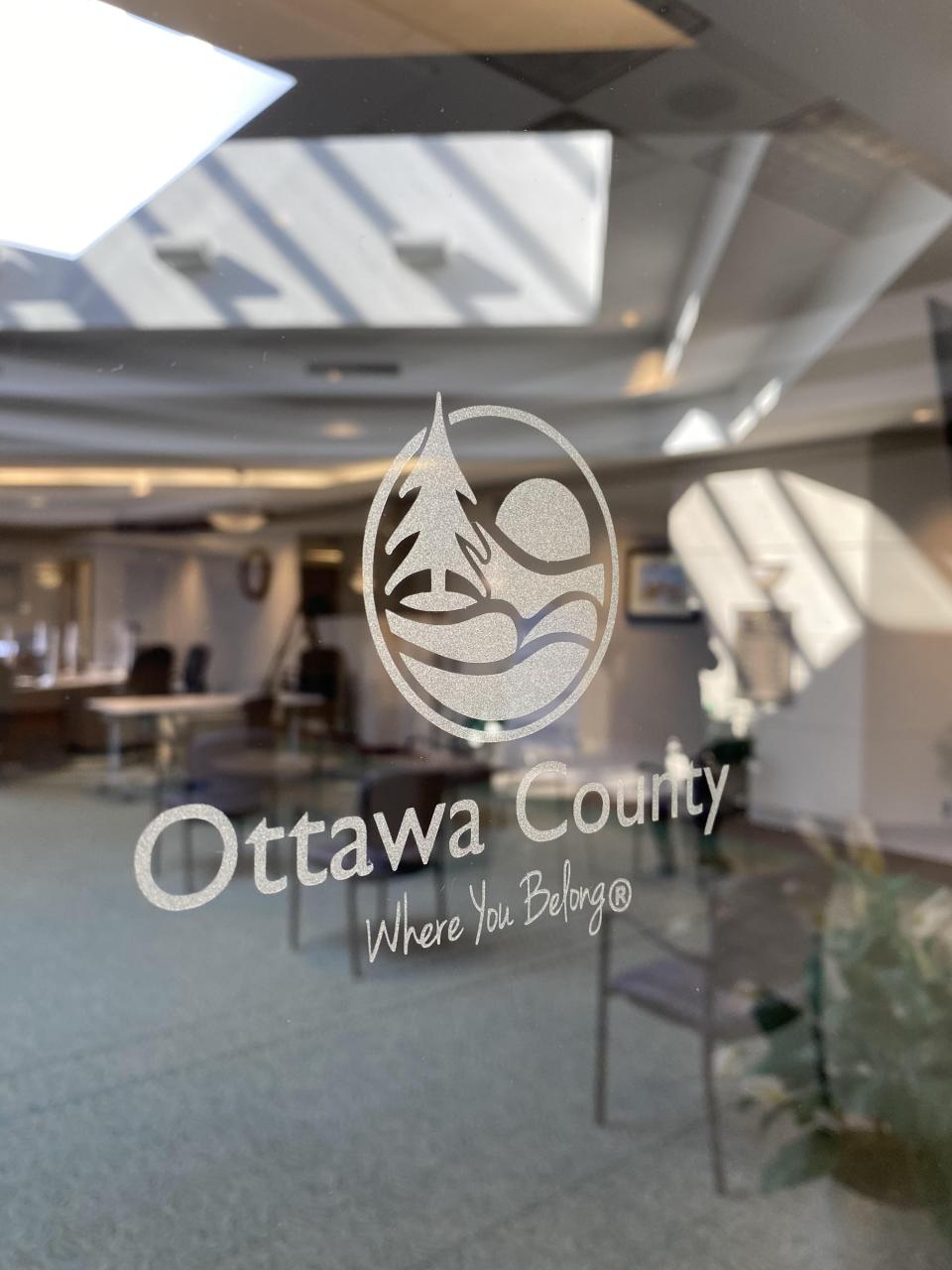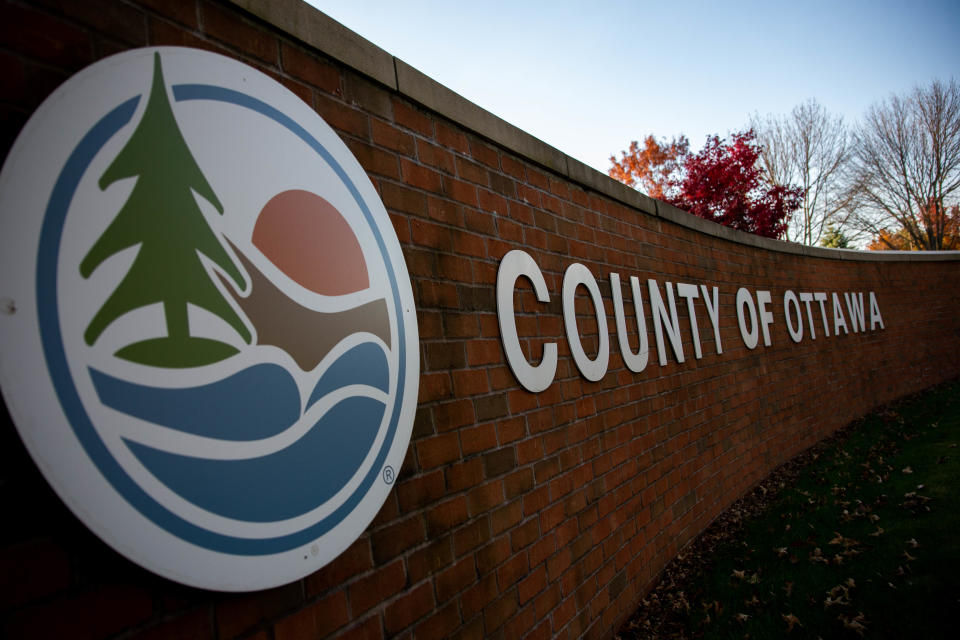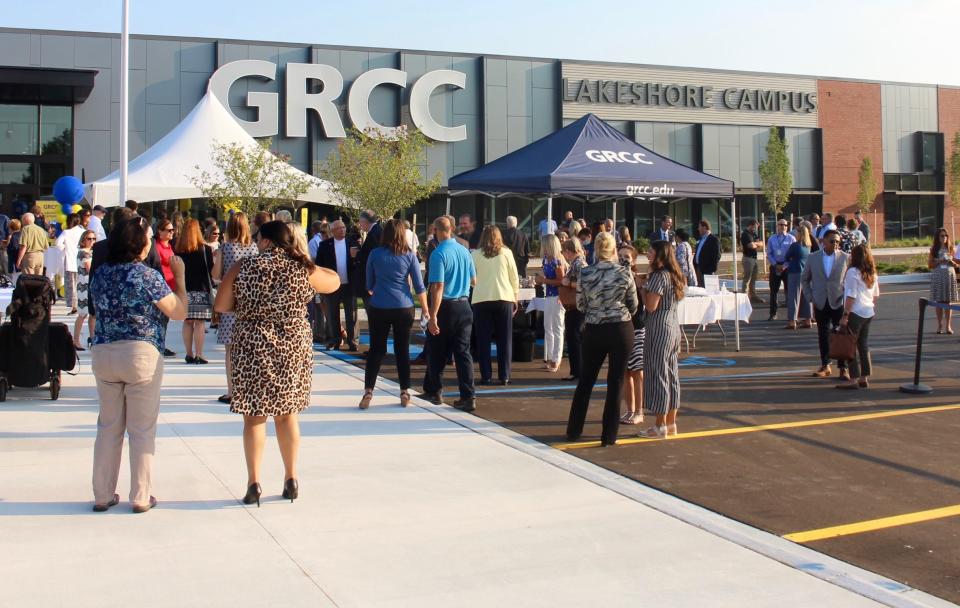Ottawa County approved $33.5 million in ARPA funds for 24 projects. Here's what passed
OTTAWA COUNTY — Two dozen projects and initiatives addressing — in part — affordable housing, childcare and workforce development were approved for funding through Ottawa County’s American Rescue Plan Act funds Tuesday.

The Ottawa County Board of Commissioners approved 24 projects totaling $33,501,657.58 during an hours-long meeting Tuesday, Nov. 22. The budget represents the majority of the county’s $57 million overall ARPA allocation.
The approval capped a months-long process of determining priorities, soliciting ideas and proposals and discussing options, which began with the creation of an ARPA committee in May 2021.
More:Affordable housing, broadband among categories highlighted for Ottawa County ARPA funds
Approval came in the second-to-last board meeting for eight members of the commission. The nine commissioners affiliated with Ottawa Impact (eight incoming, one incumbent) sent a letter to commissioners saying decisions should be tabled until the new board is in place.
Commissioners said they're simply finishing the job they were elected to do.
“The board of commissioners and the county staff built and utilized a very thorough and transparent process that allowed many voices of Ottawa County to have input,” said board chair Matt Fenske. “The committee was created one-and-a-half years ago and met consistently. It was not a hurried or incomplete process.”
Kyle Terpstra, the lone sitting commissioner affiliated with Ottawa Impact, was absent from the meeting. Roger Bergman, the lone Republican to win reelection in November, didn't attend in person — meaning he couldn't vote — but shared his support via Zoom.
After a thorough selection and review process, the County Board has approved a number of major initiatives funded by ARPA. The projects are wide-ranging and address community needs such as affordable housing, mental health, courts and more. https://t.co/CHPux8c1XZ
— Ottawa County (@miOttawa) November 23, 2022
What made the cut? For starters, affordable housing
Each project approved Tuesday fell into one of four “buckets” — human and social needs, affordable housing, business stabilization and county initiatives. Managers for each bucket presented projects to the board and answered questions prior to commissioner approval.
All projects passed 9-0 unless otherwise noted.
The largest project approved was a $10 million investment to an affordable housing revolving loan fund. The initial request was for $8 million, but commissioners voted 6-3 to increase the investment.
Following the increase, commissioners approved the project by the same 6-3 vote. Fenske, Phil Kuyers, Doug Zylstra, Randy Meppelink, Al Dannenberg and Greg DeJong voted yes, while Joe Baumann, James Holtvluwer and Frank Garcia voted no.
Zylstra made the motion to increase the investment, saying “this is about fulfilling an obligation, that residents have said over and over and over” there is a lack of senior, disability and workforce housing in the county.
Administrator John Shay recommended against the increase, saying additional funds could be pledged at a later date if desired.
More:'What is wrong with this state?' Holland resident might leave Michigan after housing nightmare
More:Holland church team up on affordable, accessible housing project takes step forward
The revolving loan fund will be managed by nonprofit IFF, which pledged to match triple the county investment prior to the increase. Funds will be loaned at low interest rates to developers committed to building affordable homes and apartments targeting median income households.
Ryan Kilpatrick, former director of Housing Next, said Ottawa County needs 15,000 housing units. To be granted loans from the fund, projects will have to meet certain income-based metrics, spend all money in Ottawa County and have letters of support from the municipality the build will be located in.
Childcare and mental health treatment
Another large-scale investment is a $7.5 million project through the Outdoor Discovery Center (and multiple partners) to create an additional 1,000 childcare slots in Ottawa County. Human and social needs bucket manager Mike Goorhouse said there's currently one childcare slot for every two children in the county.
Childcare slots will be added in centers, businesses and homes throughout the county over the next three years. ODC expects around $30 million in corporate investments to assist with the project, much of which has already been committed.
Goorhouse said the county is taking a “transformational swing” with the project.
More:'I couldn't afford to work:' Holland parents struggle with cost of childcare
More:‘The workforce has not returned:’ Michigan childcare centers face staffing crisis
To address a shortage of prescribing mental health professionals in Ottawa County, $1 million will go toward a recruitment and retention fund, which will offer yearly stipends for professionals who start practices in Ottawa County and serve underserved populations.
The goal is to eliminate waiting periods for people who need a prescribing professional for mental health issues, which can sometimes last four to six months.

The Children’s Advocacy Center was awarded $211,750 to hire a new staff member for two years, helping the CAC work through a backlog of cases created during COVID-19.
Reach for Recovery, which helps community members overcome addiction, received $337,500, which will allow the program to double the number of people it serves through increased staffing.
Four projects to help staff members obtain direct care provider certifications were approved, totaling $350,000. Benjamin’s Hope, Harbor House, Heritage Homes and Moka Corporation will work with Grand Rapids Community College to support a direct care provider certification program.
Grand Rapids Community College was also awarded $506,493 to expand the Michigan Reconnect Program, which allows qualifying students to receive free, in-district community college tuition. Ottawa County isn't currently in-district for any community college — but Michigan Reconnect allows them to obtain in-district tuition.
GRCC will use the funds to cover the in-district rate for Ottawa County students participating in the program, giving them the opportunity to attend tuition-free.
BizStream Academy received $700,000 to expand coding and computer programming to high school students. The academy currently offers after-school hours in Allendale, but will use ARPA funds to provide in-school learning throughout the county.
LAUP will use $799,000 for a workforce development initiative to work with underemployed and underrepresented people in the community. LAUP will serve as a workforce navigator to connect individuals with employment resources.
A $100,000 request by County Clerk Justin Roebuck will implement an electronic roll call and e-voting system for the county board, approved by an 8-1 vote. Roebuck said the system will improve transparency by making motions and votes easier to search through the county website.
Zylstra was the lone dissenting vote on the project. He said he supported the idea, but thought it better to leave for the incoming board to decide, since it directly affects the work of commissioners.
A trio of parks department requests — $2 million for the Idema Explorer Trail, $906,000 for the Middle Macatawa Trail System and $3.4 million for Ottawa Sands Phase 1 Improvements — were approved.
The Idema Explorer Trail and Middle Macatawa Trail projects passed 9-0, while Ottawa Sands passed 8-1, with Zylstra voting against the project.
Meppelink attempted to amend the amounts for the Idema Explorer Trail and Ottawa Sands down by $150,000 each to help offset the increase in affordable housing funds. The motions failed, with support coming only from Meppelink and Zylstra.
The county's crime victim assistance fund received $1 million. Prosecutor Lee Fisher plans to invest the money and use interest generated to support victims of crimes in the county, creating a sustainable funding source.
An initiative to provide a countywide food rescue infrastructure was approved for $486,675. The collaboration between Ottawa Food and Community Action House will work with restaurants and grocers to “rescue” food that would otherwise be thrown out and provide it to residents struggling with food insecurity.

The Ottawa County Department of Public Health was granted slightly over $1.5 million for Medicaid cost-based reimbursements. Ottawa County DPH receives partial reimbursement for Medicaid services provided already, but payments are typically delayed by two fiscal years, according to Ottawa County Health Officer Lisa Stefanovsky.
As a result, OCDPH is expecting a shortfall over the next two years, due to COVID-19 service disruptions. Funds are intended to cover that shortfall for the next two years.
One million dollars will go toward accelerating farmland protection in the county. The Agricultural Preservation Board will use the funds to purchase agricultural conservation easements in areas known to have groundwater challenges and need for intensive management.
Subscribe: Receive unlimited digital access to your local news coverage
ARPA funds were previously used to give county employees “inflation impact payments” of up to $5,000, which totaled $5 million.
In addition to the projects approved Tuesday, the county is setting aside $7.5 million for broadband access and $5 million for capital improvement projects. These figures were initially $15 million and $10 million, respectively, but were reduced to accommodate more projects.
After increasing the housing fund investment to $10 million, funds for these projects will need to be scaled back by about $700,000.
— Contact reporter Mitchell Boatman at mboatman@hollandsentinel.com. Follow him on Twitter @SentinelMitch.
This article originally appeared on The Holland Sentinel: Ottawa County approves $33.5 million in ARPA funds for 24 projects

